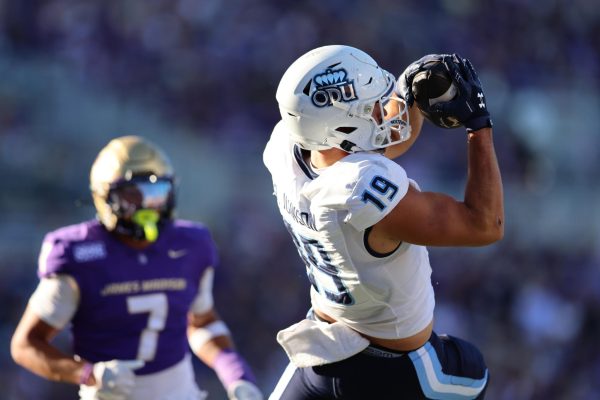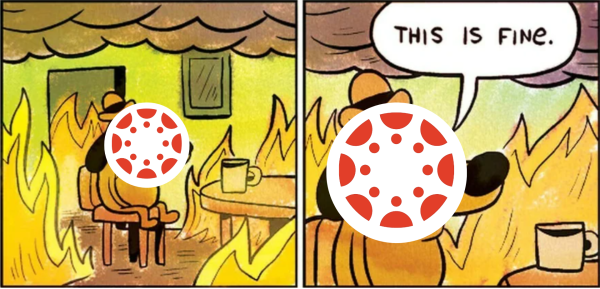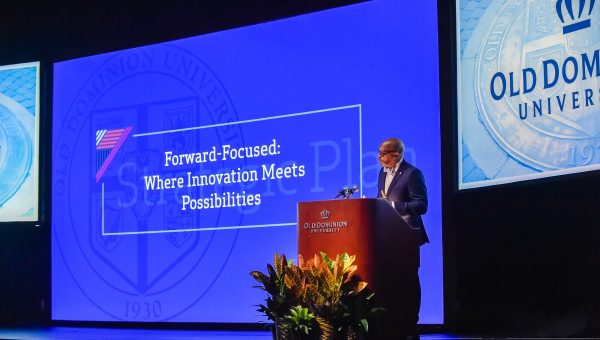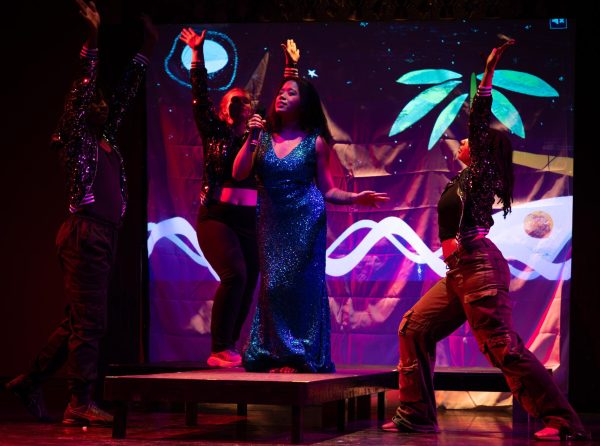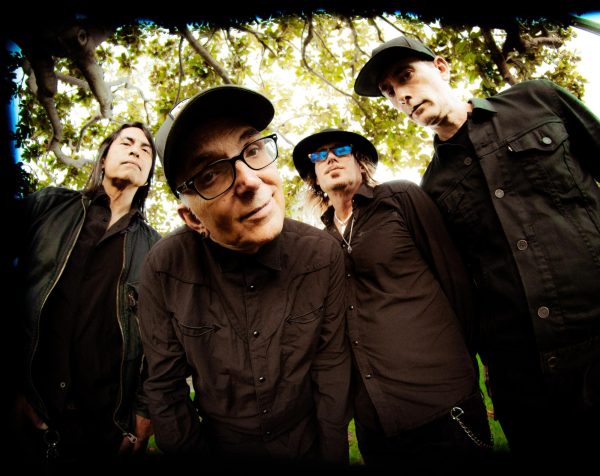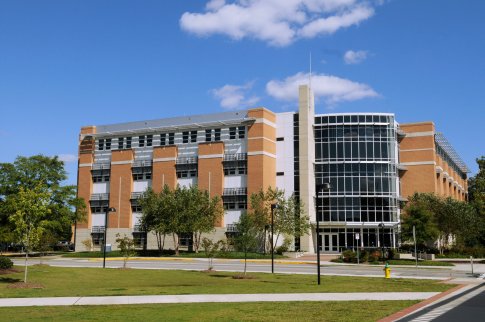The American Dream
This article first appeared in the spring 2022 Mace & Crown magazine issue.
The American Dream is often defined as the achievement of wealth and success through hard work and dedication. This dream has attracted people from every corner of the world, and from every walk of life. Despite all the hardships that have been faced since 2020, people still work with grit to pursue a better life and to secure a better future for themselves, their families, and their communities. In its own right, this edition of the magazine emphasizes that dream. Students, both international and first generation, experience different obstacles. From language barriers to cultural differences, all of these are what impacts these students. Yet, despite any monumental or trivial hurdle they encounter, they keep pushing on. Seeing how these students handle these difficulties while carrying responsibilities outside of academics is a testament. It’s a testament that the spirit of determination is alive and well. Not only do these communities have hope for a brighter future but so does our nation and the rest of the world.
Many students who experienced cultural shifts and are currently pursuing fields in STEM face struggles with optimism. International student Gonzalo Lopez de Ayala, a sophomore from Spain, is pursuing a mechanical engineering degree. He shared his experiences in the USA and the challenges of learning a language.
When did you come to the US?
Gonzalo: My dad is in the [Spanish] Navy so we moved to Norfolk, VA in 2017. I have actually been in the US before 2017 like three or four times. I was only six years old. One time, I went to Maine to study English with a family we knew for a month.
What was your experience like handling the language barrier? I came from an immigrant family myself and I know that experience is a big challenge.
Gonzalo: At first, I thought I was able to speak a little bit of English. I mean, I knew a few words but no one understood me when I came to the US. I remember I was in Chipotle and I tried ordering a burrito but man, it was impossible. I was 16 and it was in the airport at Philadelphia. I tried to order a burrito because I was so hungry. They just couldn’t understand me at all. I even tried pointing at the food, “I want this, and that, and that.” It was a mess and I was making the lady mess up. It was tough. My parents were there and they speak English pretty well; they didn’t want to help me though. They wanted me to struggle, to be able to learn the language. I ended up getting the burrito, but that was a hard process. It motivated me to actually make an effort to learn.
How did you learn the English language? Did you take any unique steps?
Gonzalo: I started studying, then I just started listening to people in the street, to shows, to songs, and all that. It helps because you start developing an understanding of how the language works. I still had to learn new words so for that I carried a book around with me. If I was ever having a conversation with someone and they said a word I didn’t recognize, I would have them write it down. Then, when I got home I would look at that word, see the definitions, then examples of how it was used. That’s how I got better at the language.
What were some significant cultural differences you’ve noticed from Spain?
Gonzalo: I will say…the culture and the way people socialize. The countries are different because of the sizes. In the US, things are bigger. Cars are bigger, houses are bigger, streets are bigger. Something I find curious and funny is that here in the US, sometimes you don’t find a sidewalk by the road. Over in Europe, there’s always a sidewalk and people are always walking. Also, here people are nicer but, I don’t know how to explain it. I think it’s easier to know people, but not to be friends with. Here, people socialize more on the weekends but [in Spain], people will get together after class for a drink, or something, and continue with their day. But yeah, I believe people socialize more over there.
What were your biggest challenges during college? Did the pandemic make it harder or significantly impact your life as a student?
Gonzalo: Well, I tried to have a balance of everything. I like to play sports. I love having a social life, I really like socializing and I tried to study as well, so what I do is that I will reserve some time frames during my day just to study for classes. Once I’m done with that, which is my priority, I allocate my time to other things like going to the gym, playing a sport, or socializing with friends. For COVID, it wasn’t too difficult but I couldn’t visit back home so that was harsh.
Do you miss your home country?
Gonzalo: I do, I do! At first, I didn’t like the idea of coming to America because my entire life was in Spain. But when I came here, it was very beneficial and I actually love it here.
Gonzalo’s experiences detailed the struggles of learning a completely new language and going through a cultural shift. Other students experience cultural struggles while growing up in the U.S.
Cielo Sotelo Paredes, a third year ODU student, is pursuing both a mechanical engineering degree and medical school. Her family is from Mexico but she was born in Arkansas. She’s the second oldest out of seven.
When we first talked, you mentioned that you grew up in Arkansas. What was living there like compared to here?
Cielo: Arkansas is really nice actually! Over there, the majority of the population is either white or Mexican. It’s a unique type of Mexican since it’s near Texas. Moving out here was a cultural change because out here, there are more Caribbean latinos rather than Mexicans. It’s also different because Arkansas is more of a nature state. We would go hiking and camping often but here in Norfolk, you can’t really do that as often.
What were some cultural differences you experienced growing up? You know, between living at home and the “outside world.”
Cielo: It’s funny because I feel like if you ask any immigrant, or someone who came from somewhere else, they usually grow up in a house with different rules and more strictness. Outside of my house it’s American society but then, once you get back into your house, it’s back into the society of where you’re from. For us in Mexican culture, it’s very respectful. We greet each other with a kiss on the cheek if it’s a friend or family. If they’re strangers, you shake their hand because a kiss is too much. Here, you can’t even smile at someone without them taking it the wrong way. You can’t shake people’s hands unless it’s professional. You can’t kiss people on the cheek because, you know, that’s weird here.
What influenced you to pick the degree you’re pursuing right now? Were there any family members who had a background in engineering?
Cielo: Actually, no one in my family influenced that. No one here in my family has had a “professional” job here so it’s like I’m the first generation to do anything in my family. No one in the family has even made it to sixth grade so college is a big thing. I was undecided my first semester. I knew math was one of my favorite subjects so I just decided to go with anything that had to do with math and something that could give me a job. Honestly, I wanted to do something with art or marine biology but a lot of immigrant families, including mine, diss those degrees.
I feel like job security is always a big component in choosing a degree. Especially with international students or students from immigrant families, it’s always a case of, “Go big or go home.”
Cielo: Yeah, because I’m also one of seven, and the second oldest, so I have to set an example for the younger ones too.
When you started college, what were the biggest struggles you had to face?
Cielo: Well, I feel like it’s not really the struggles of college. I feel like school in general has always been a struggle. Your friends in school, for example, have their parents help them. But me, I have to ask my teacher or my classmates or YouTube or something. My family has never been able to help me in school academically. They can’t teach me to do anything in English. Because my parents never had [higher] education, they can’t help me with math or science or anything like that. So it’s always been a struggle learning by yourself but the more siblings you have, the more you can help each other out. I get calls on the phone every day from one of my younger siblings asking me to help them out with their homework.
You mention your siblings a lot and being an example. Besides having the responsibilities of college and working, I imagine you also have to be a second parent in a sense?
Cielo: Yeah, like my oldest sister. She’s four years above me so she could definitely help me in school, but I know it’s a lot of pressure on her to be the first one to go to school, first one graduate, to be the only one that can help us without getting help herself. I also have to stay home with the kids all day. I have to cook, feed the kids, make sure the house is cleaned up, and basically do everything that a parent is supposed to.
From my experiences being in the Latino community, I know that work ethic is a very big part of our lives. How did that work ethic manifest in you?
Cielo: To me, the way that work ethic came wasn’t really from inspiration. It was more from sadness, from how everything came to be… Hearing all the stories about the pain [my mother] went through to get to where she is really pushed me. My mom loved school, that was her favorite thing. The fact that she was forced to drop out of school by her mom so she can stay home and take care of the kids while her mom went to work… She was one of eight but she has five brothers and they’re all older than her. Since she’s female, she had to take care of them regardless.
Like you said, it is more pressure as you’re like a second parent so the uphill battle is harder…
Cielo: Yeah, they could obviously choose their own path in life. At the same time, they don’t understand that we’re the first generation. We don’t have any family here who’s in politics. We don’t have a family who has businesses. We don’t have family who have been in the military. No one has ever really had a job or a position here like in the country yet. So in my first generation of siblings, we have to be the ones to plant roots in America. Then, with those strong roots is where the family starts growing. They don’t understand that a better life isn’t necessarily for the people who come into America. It’s for the generation that comes after them because the first ones to arrive still have to struggle harder to move forward.
Both of these students have experienced two different sides of multiculturalism. Going through college is not an easy task, but for many, it’s a hope to achieve a better future that’s worth every sleepless night and headache inducing exam. It’s great to see that students keep fighting the good fight and muscling through every obstacle. Whether students choose their degree based on needing job security or based on an interest, it’s inspiring to see that they’re still steadfast in reaching the mountaintop of their careers.
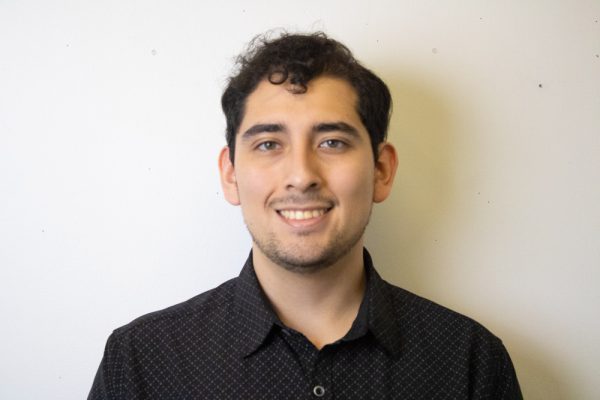
Gabriel is the Editor-in-Chief for the Mace and Crown. He is in his senior year at ODU and is currently majoring in Mechanical Engineering Technology....


